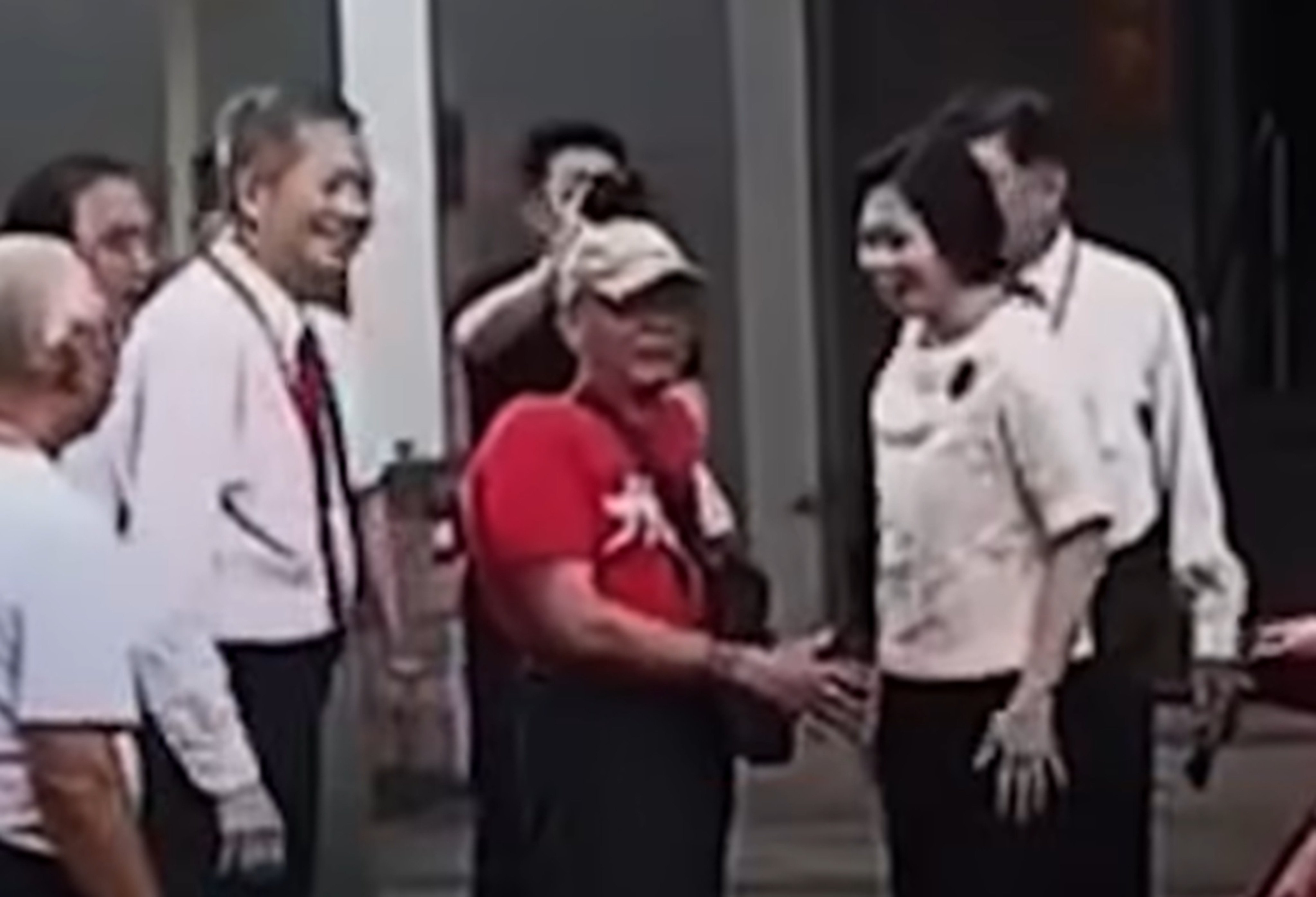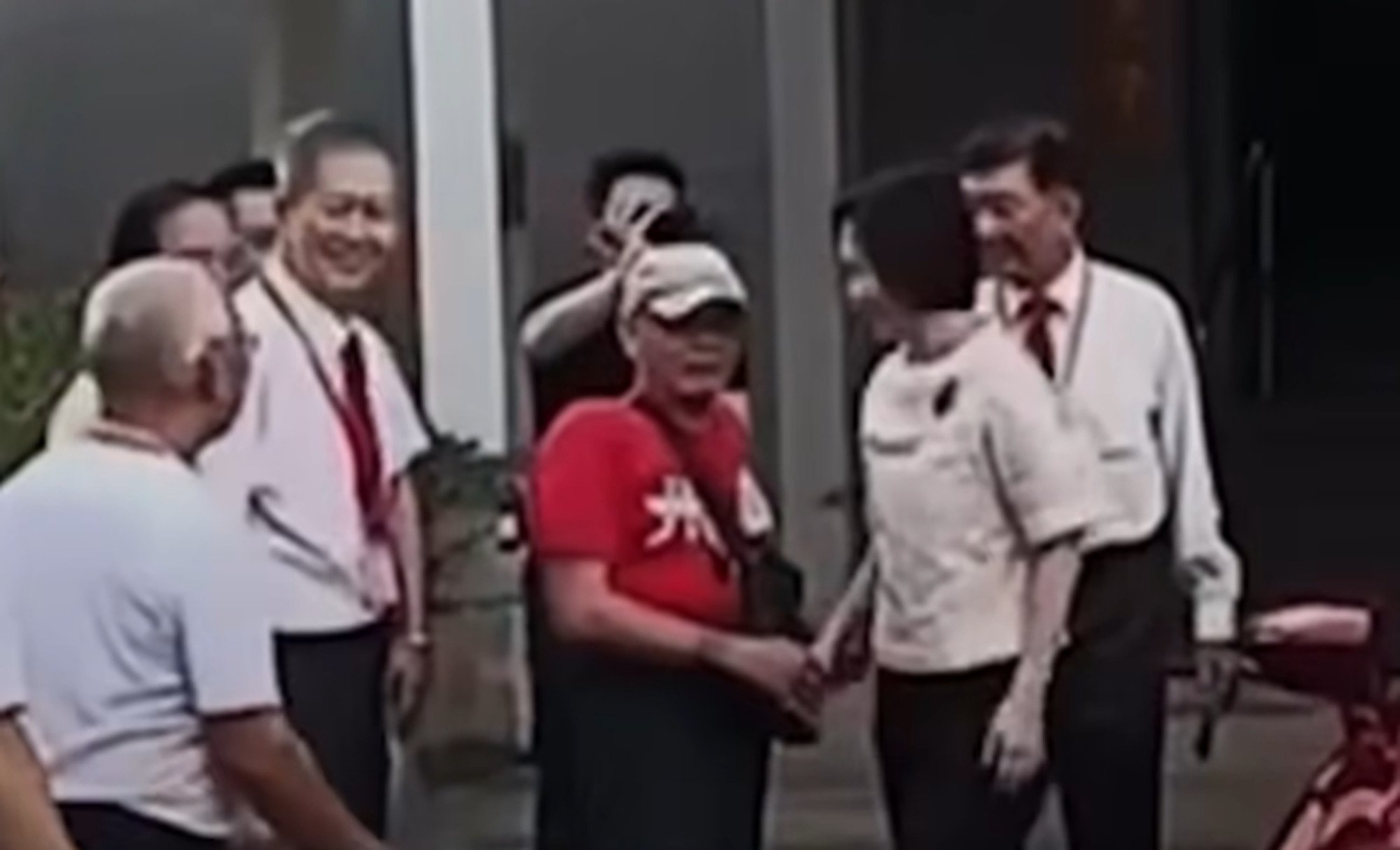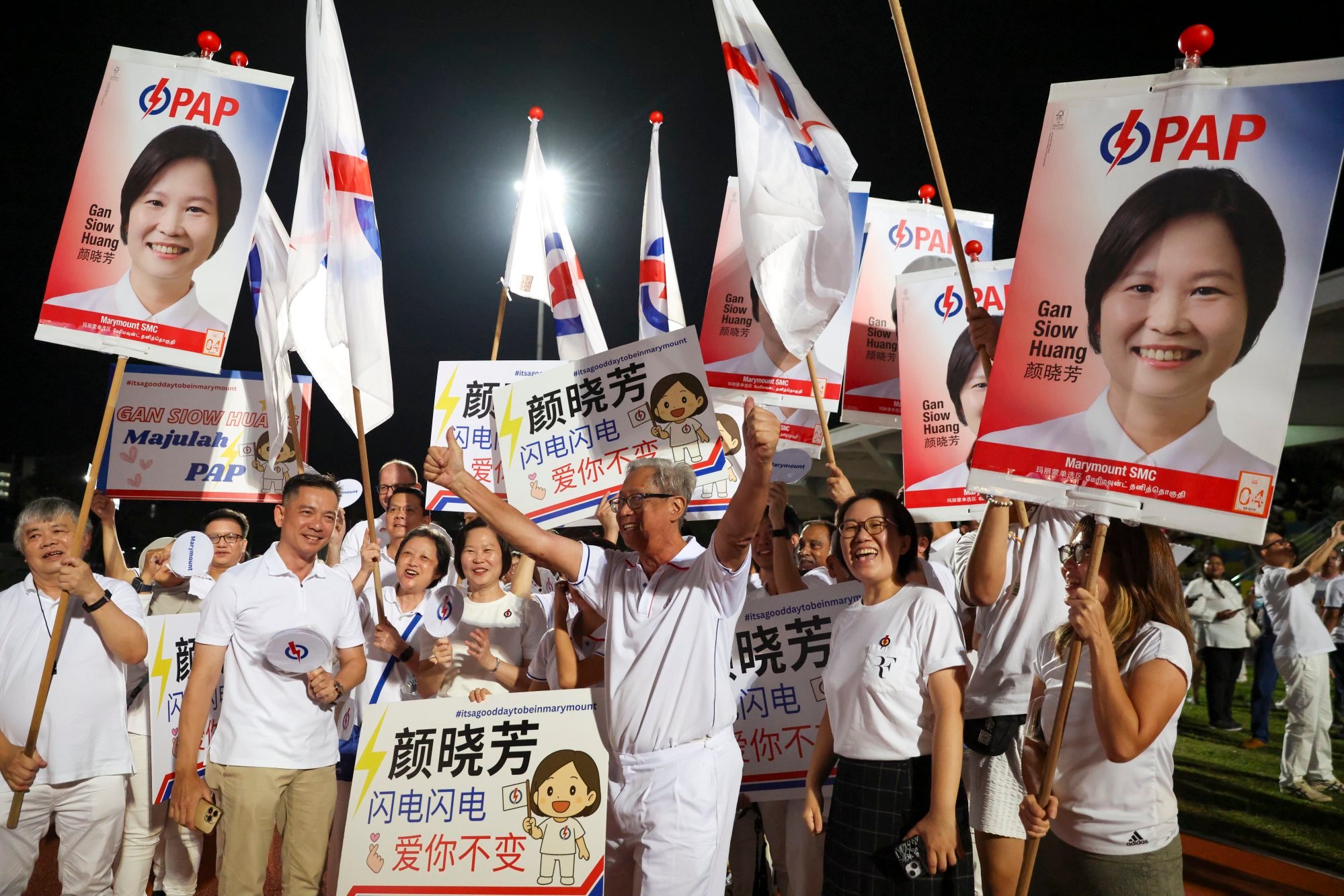Why a Singapore politician’s missed handshake caused a stir: ‘optics matter’
The outrage directed at Minister of State Gan Siow Huang over a simple, missed gesture echoes a similar incident decades ago that cost a party predecessor dearly

The backlash faced by a Singapore minister of state after she was accused of snubbing a handshake from an elderly man at a cultural clan event has highlighted underlying post-election sensitivities and the expectations of Singaporeans on their highly paid politicians, observers say.
The debate earlier this month centred on vitriol directed at Gan Siow Huang, minister of state for foreign affairs and trade and industry, after an online video circulated of her arriving at the venue and appearing to shun a man dressed in a cap and T-shirt despite shaking the hand of another more formally dressed member of the welcome party.
The event was organised by Cantonese cultural organisation Kwong Wai Siew Peck San Theng, which held a press conference last week to defend Gan and provide its own account of the incident, including from lion dance troupe member Leong Chee Leng, 72, the other subject of the video. Leong at the presser said Gan was polite to him.
The initial backlash Gan faced showed the importance of optics following a recently concluded general election and the demands citizens have of their well-paid leaders to engage all Singaporeans, analysts told This Week in Asia.

“The Gan Siow Huang handshake incident may have seemed minor, but its rapid escalation into national conversation indicates that Singaporeans’ expectations of politicians are evolving, shaped by both traditional values – such as respect and humility – and modern demands for authenticity and emotional intelligence,” said Nydia Ngiow, managing director at BowerGroupAsia.
“The optics of a missed handshake, especially with someone elderly or from a working-class background, tap into longstanding sensitivities about class and elitism in a society that prides itself on meritocracy but remains acutely aware of social divides.”
In videos of the incident, Gan is seen alighting from her car before turning to greet representatives from Kwong Wai Siew Peck San Theng, a 155-year-old cultural institution managed by 16 Cantonese clan associations.
Leong is seen helping her shut the car door and is the first to extend both hands to greet her. But Gan looks around as she places her phone in her pocket and shakes the hand of a man dressed in a shirt and trousers before giving Leong a limp handshake.
Gan apologised for the delay in shaking Leong’s hand after the video made its rounds on social media. She told government-funded The Straits Times that she was overwhelmed by the group that had greeted her and was trying to identify the host of the event to acknowledge him first.
The optics of a missed handshake tap … into longstanding sensitivities about class and elitismNydia Ngiow, managing director at BowerGroupAsia
Users on online platform Reddit were quick to criticise Gan’s claim that she was overwhelmed, pointing out she had a military background. Gan was Singapore’s first female brigadier-general in the armed forces before joining politics in 2020.
In a thread of the video, one user wrote: “If an MP treats a common person with such disdain, how can people trust that they really have the people’s best interests at heart? Regardless of intention and whether her actions were a lapse in judgment, this is pretty bad optics.”
The incident was reminiscent of the one involving former acting community development minister Seet Ai Mee, who faced backlash for washing her hands after shaking hands with a fishmonger on the campaign trail in 1988. Seet explained she had also shaken hands with pork sellers and wanted to wash them before meeting Muslim residents. She lost the election in 1991.
Independent political observer Felix Tan pointed out that both incidents involving Gan and Seet, while certainly not malicious, smacked of a sense of entitlement and elitism to critics, although he also said there was a tendency for online users to look for reasons to demonise politicians.
“These situations are more about optics … Ministers have to consider their actions in any social context. This is especially so when most of the ministers are afforded positions that put them on a pedestal and, sometimes, it’s about stepping down a notch and humbling themselves,” Tan said.

Crystal Lim-Lange, chief executive of leadership consultancy Forest Wolf, told This Week in Asia that expectations placed on the ruling People’s Action Party (PAP) politicians were always high since they were among some of the highest paid in the world.
“This is one of the most stable political scenes in the entire world. Expectations are sky high, so they should know that they are under scrutiny, which is of a different standard to anyone else,” Lim-Lange said.
She noted that there was a perception, misplaced or not, that politicians only walked the ground to shake hands with residents during the campaign season every five years before returning to their ivory towers.
“The visual contrast is that we’ve just seen the PAP politicians go about shaking literally everyone’s hands in the elections, and then now we see that she’s not shaking somebody’s hand,” she said, noting there was a perception that PAP politicians could be elitist, which was not helped by hot-mic incidents where perceived derisive and snobbish comments by politicians were heard in parliament.
“What we can learn from this incident – optics matter to the ground, be present and prepared to be on form when there is a high-key photo opportunity such as a welcome party awaiting your arrival, and shake hands with every person, especially those who appear less privileged,” Lim-Lange said.